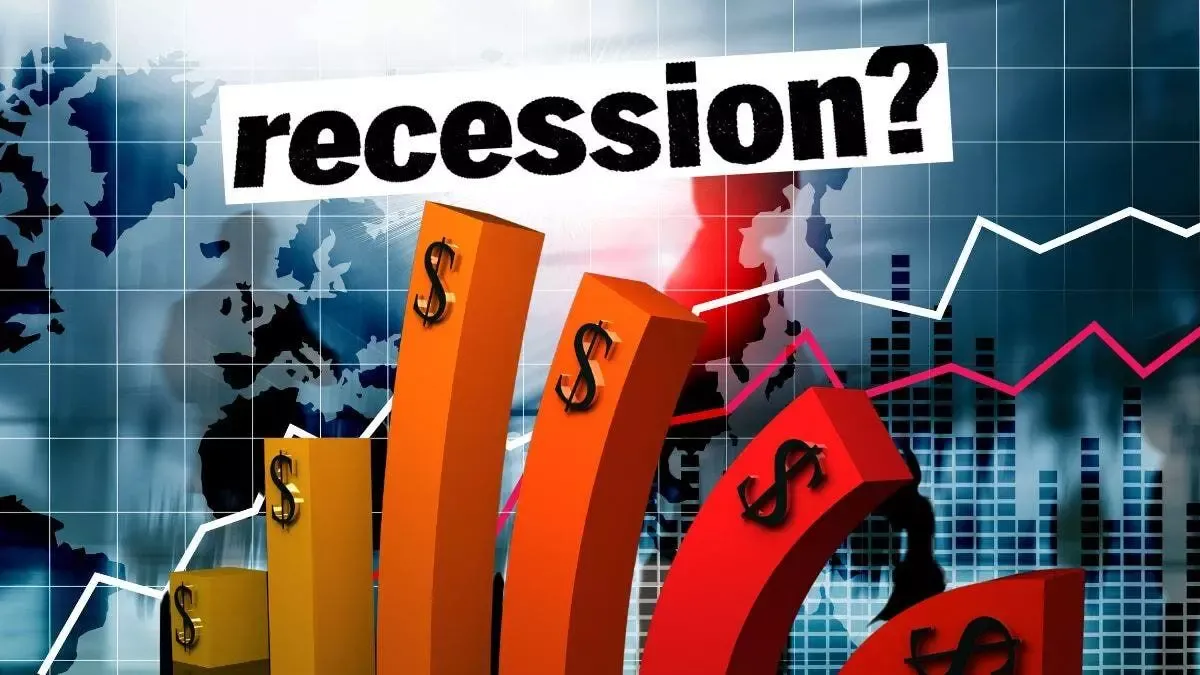If you read financial news, you've probably seen the word "recession" frequently enough to assume the economy is already in one. According to the conventional definition — two consecutive quarters of negative economic growth — the United States has not yet reached a recession.
According to a new study by Morning Consult, about half of all Americans believe that a recession has already begun, despite the fact that recessions are only recognized once they are well underway.
Nonetheless, amid predictions of a recession, the S&P 500 has gained roughly 7% this year. This may result from a chorus of economists expecting a relatively brief and weak recession, which investors may have "baked in" when they bid the S&P index down 18% in 2022.
For some market analysts, portfolios may be in for a surprise. In a recent interview with MarketWatch, David Rosenberg, a former economist at Merrill Lynch who now runs Rosenberg Research & Associates, referred to investors' recession concerns and market optimism as "cognitive dissonance."
According to Raheel Siddiqui, senior research analyst at Neuberger Berman, a recession in 2023 will be "more severe than anticipated."
These are reasons why some economists are still pessimistic about the economy's future and what that may imply for your portfolio if they are correct.
In 2022, the Federal Reserve attempted to fight the inflation that was eroding the finances of People. The central bank's response consisted of a series of interest rate rises intended to slow the economy and reduce inflation.
The question now is whether Fed's actions will be sufficient to curb inflation without triggering a recession.
The possibility of achieving this has been termed a "soft landing," and even if it does not occur, many economists predict a recession would be "soft-ish." Several of the characteristics of typical recessions are not present. For example, consumer spending, which accounts for around 70% of the U.S. economy, is robust. The job market is also robust, with a 3.4% unemployment rate.
"This is the argument people are making," Siddiqui stated. Inflation is decreasing, salaries are performing well, and real earnings are becoming positive.
Many economists have an optimistic outlook on the economy, but other experts sense danger building underneath some of the top data.
While many view decelerating inflation as a hint that the Federal Reserve may soon be able to halt or stop increasing interest rates, Siddiqui argues that headline inflation data do not capture the entire story.
In January, inflation among services reached its highest level since 1982. According to Siddiqui, there is no instance in history where services inflation decreased before unemployment increased. He stated, "That's not how it works." "First, employment deteriorates, followed by services inflation."
In other words, for inflation to decline, the economy will have to experience extra suffering in the form of increased unemployment. This could result in prolonged rate hikes, which plunge the economy into a worse recession than anticipated by economists. Siddiqui stated, "The Fed has a long path ahead than even the Fed admits."
Corporate earnings could be in for a blow.
Those with a more optimistic perspective on equities may argue that despite economic uncertainties, the prognosis for corporate earnings, a key driver of market performance, is ultimately optimistic. According to Trade Algo, S&P 500 will increase earnings by 1.5% in 2023.
"In a vanilla recession, wages decrease by 20%. We have never had a recession in which earnings increased," Rosenberg told Trade Algo, calling this year's projections a "glaring oddity."
Siddiqui had not seen such a high frequency of corporations utilizing accounting systems that incorporate "best-case scenarios that may never occur" for decades.
Investors tend to criticize "aggressive" accounting techniques when corporations fail to fulfill profit expectations. And when economic downturns coincide with deflation, you may anticipate a larger-than-normal decline in earnings, according to Siddiqui.
Consideration must be given to income disparity.
Siddiqui stated that a substantial portion of inflation stems from the stimulative monetary policies of the pandemic era, which led many Americans to rapidly raise their cash reserves, which they spent at a rapid rate when Covid limits were eased.
Siddiqui stated that the top 20% of the wealthiest households, who sustain their lifestyles via savings, scarcely feel the impact of rising interest rates. With record credit card and personal loan amounts, however, the lowest half of wage workers who rely on income for support feel the squeeze.
Siddiqui stated that the lowest 25% of earnings are expected to deplete their spare savings this quarter due to salaries needing to keep pace with consumer consumption. He stated that this would undoubtedly harm businesses that rely on low-income clients.
In other words, two economies are already operating, and one is struggling. "The top quartile is acting as though it is the Roaring Twenties. The lowest quartile is entering a recession, according to Siddiqui.
According to these economists, a severe economic downturn in 2023 would lead to a precipitous decline in stock values. According to Siddiqui's estimations, the S&P 500, presently trading at 4,079, might reach 3,000 this year. Rosenberg anticipates 2,900. This would result in a 26% to 29% loss.
In light of short-term market forecasts, financial experts advise against making significant portfolio adjustments. If you believe that a severe recession and bear market are impending, you should prioritize accumulating high-quality assets in your portfolio.
Rosenberg stated that bond investors may choose to increase their exposure to funds that hold U.S. Treasurys, as Treasurys now provide excellent yields, will increase in price if interest rates decrease, and have never faced a default situation.
He advised investors to continue with high-quality companies with stable balance sheets and dividend distributions since these companies often do better during the economic upheaval.
Generally speaking, avoid taking unnecessary risks, Siddiqui added. "I would keep a highly risk-averse portfolio for the year – whatever that means to you."

Subscribe to our newsletter!
As a leading independent research provider, TradeAlgo keeps you connected from anywhere.








